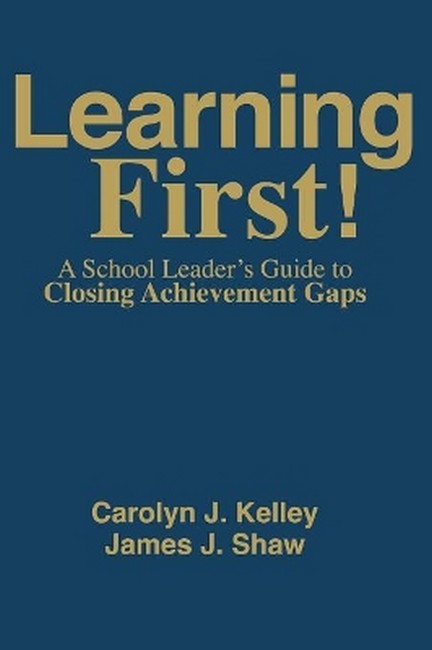Carolyn Kelley is a professor of educational leadership and policy analysis at the University of Wisconsin-Madison. She is an internationally recognized scholar in teacher compensation policy whose research focuses on the preparation and professional development of school leaders, and teacher evaluation and compensation as elements of strategic human resource management in schools. Her current research attempts to build a shared conception of mastery in educational leadership by examining the practices of principals who have closed achievement gaps and significantly improved learning for all students. Through this work, she seeks to build formative assessment tools and intervention strategies to improve leadership practice in schools. Kelley earned her PhD from Stanford University (1993) and conducted research with Consortium for Policy Research in Education (CPRE) from 1989 to 2002. Her publications include over 30 journal articles, book chapters, and research reports, and she is the coauthor of two books: Learning First! A School Leader's Field Guide to Closing Achievement Gaps (with James J. Shaw, Corwin Press, 2009), and Paying Teachers for What they Know and Do: New and Smarter Compensation Strategies to Improve Schools (with Allan Odden, Corwin Press, 1997 and 2001). She has provided consulting services to numerous states, school districts, and policy and practitioner organizations, including national and state teacher unions. James J. Shaw is currently superintendent of schools in Racine, Wisconsin. Racine is an urban school district of 21,000 diverse students located between Milwaukee and Chicago. Before serving as the Racine superintendent, Shaw was the clinical professor and director of the Wisconsin Idea Executive PhD Program in the Department of Educational Leadership and Policy Analysis at the University of Wisconsin-Madison. His major interest at the University was advancing equity in student learning by creating partnerships in K-16 education to promote the integration of theory, research, and practice to improve public schools. His research interests are social learning and social development theory and its relationship to school leadership and leadership development. Before going to the University of Wisconsin, Shaw was a highly acclaimed educator and administrator in K-12 public education. He served for ten years as the superintendent of schools in Menomonee Falls, Wisconsin. He is a former Wisconsin Superintendent of the Year and has been recognized by numerous organizations for his leadership and contributions to public education.
Request Academic Copy
Please copy the ISBN for submitting review copy form
Description
Table of Cases Table of Tools Preface Part I. Introduction 1. The Case for Learning First 2. The Road Map for Learning First Part II. Socio-Cognitive Leadership 3. Setting Direction and Building Commitment 4. Evidence-Based Plan, Value-Added Results, and Reflection for Continuous Improvements Part III. The Dimensions of Leadership for Learning 5. Advancing Equity and Excellence in Student Learning 6. Developing Teacher Capacity 7. Managing and Aligning Resources 8. Engaging Community Part IV. Levers of Change 9. The Principal's Role 10. The District Role Resource A. Socio-Cognitive Leadership Rubrics Resource B. Socio-Cognitive Leadership Friendly Observer Site Visit Protocol References Index
"This text is the product of considerable research and disciplined reflection on closing the student achievement gap in schools, unquestionably the most important challenge facing schools at this time. It offers a wealth of well-illustrated advice, especially to those in school and district leadership roles, about how to go about addressing this challenge in their organizations. It should be required reading for every principal and superintendent." -- Kenneth Leithwood, Professor of Educational Leadership and Policy Our school's national testing results need to improve, and as the principal I have been generating strategies, with my staff, to turn those results around. We have developed lots of good, solid strategies, but the bit that was missing is how we hold this new plan together. Then I found Kelley and Shaw's Learning First, and it pushed me back into the big picture stuff, where I should have been all this time. The book is based on contemporary leadership research from the University of Wisconsin-Madison. The opening sentence struck an immediate chord: "Diversity is the greatest strength of public schools, and their greatest challenge". (p. xi) That's where we are at. Other points of engagement were: the moral imperative for Learning First, addressing the achievement gaps, and the resource gaps, which are often overlooked. The conceptual framework of Learning First in visual form looks like many other concentric-circle models. The elements are what makes it different: socio-cognitive leadership, the dimensions of leadership for learning, and levers of change (shown in Figure 2.1). This framework is repeated throughout the book, showing how the parts are integrated. This book, beside generating strategies that can be transferred across education systems, is focused and practical. This is higher-level leadership coaching that is very applicable in a variety of school situations. Because the book is fulfilling an immediate need for my school community, I would give it 6 stars (out of five), if I could. -- Neil MacNeill, Principal "The Learning First framework provides a much-needed bridge between the current research in leadership and instruction and the day-to-day practice of leading a school." -- Art Rainwater, Associate Visiting Scientist, University of Wisconsin-Madison "In a time when the spotlight is on schools and the achievement of subgroups of students, educators need to read this book and reflect on the guiding questions. Then we need to take the challenge and do what we know is right so we are doubling student performance and closing achievement gaps." -- Leslie Standerfer, Principal

